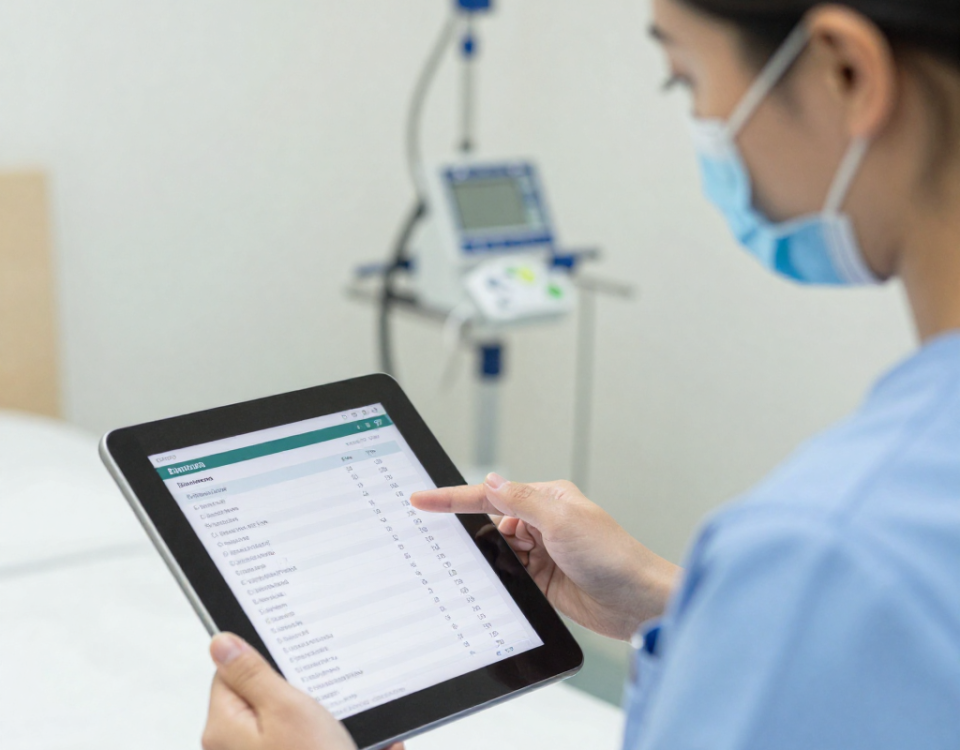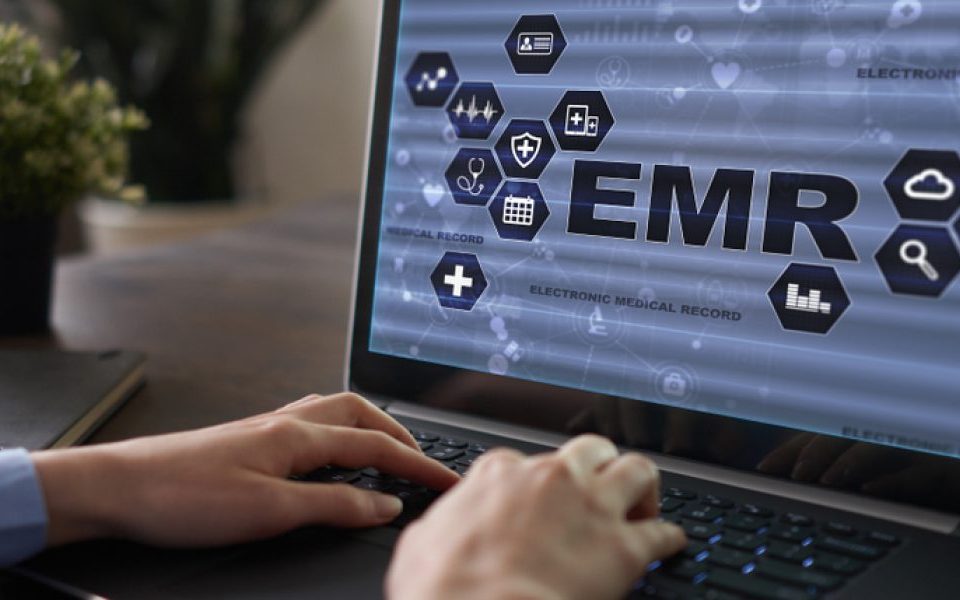- Home
- About Us
- EMR Features
-
-
- EMR Features
-
- Patient Health Features
-
- Clinic Features
-
-
- Specialties
-
- Blog
- Contact Us
Alembico EMR : Now SOC 2 compliant and ISO13485 certified
5 Ways Electronic Medical Record Systems Improve Data Security

Data security has become a significant challenge for the healthcare industry. Patient records hold sensitive and personal information, making them a prime target for cyberattacks. At the same time, healthcare organizations face increasing pressure to comply with stringent regulations like Ontario’s PHIPA (Personal Health Information Protection Act). Traditional paper records or outdated digital systems often fail to meet these modern security needs, leaving patient data vulnerable to breaches and unauthorized access.
Electronic medical record systems provide a robust solution to these challenges. These systems enhance security while streamlining data management by integrating features like encryption, access controls, and compliance tools. Below are five ways EMR systems improve data security, helping healthcare providers protect sensitive information effectively.
1. Encryption Safeguards Sensitive Data
Encryption is a key feature of electronic medical record systems that help protect sensitive patient information. It converts data into a secure, unreadable format that can only be accessed with a decryption key.
For example, in Ontario, healthcare providers must protect patient data under strict regulations. EMR systems with encryption ensure compliance with these standards, protecting records whether they are stored locally or transmitted between systems. This minimizes the risk of breaches and unauthorized access, keeping patient data safe at all times.
2. Role-Based Access Limits Unauthorized Use
EMR systems use role-based access controls to ensure that only authorized personnel can access specific patient information. This adds a layer of security by restricting data visibility based on job roles.
For instance, a medical billing company may only need access to financial records, while clinical staff focus on treatment histories. By segmenting access, EMR systems reduce the likelihood of accidental or malicious breaches and provide accountability by tracking who interacts with the data.
3. Compliance Tools Simplify Regulatory Requirements
Healthcare providers must adhere to complex regulations to ensure patient data remains secure. Failure to comply can result in heavy fines or reputational damage. Electronic medical record systems include compliance tools designed to simplify adherence to these rules.
For healthcare providers using medical billing software in Ontario, integrated compliance features ensure financial processes align with legal requirements. Automated updates, audit trails, and secure logs make it easier to track data access and meet regulatory standards without additional administrative burdens.
4. Backups Reduce the Risk of Data Loss
Data loss can occur due to system failures, cyberattacks, or natural disasters, disrupting operations and patient care. EMR systems mitigate this risk with regular backups and reliable recovery solutions.
Many EMR platforms incorporate cloud-based storage, which keeps data secure and accessible even during unexpected events. This ensures that patient records remain intact, allowing healthcare providers to continue delivering uninterrupted care.
5. Real-Time Monitoring Identifies Threats
Real-time monitoring tools in EMR systems help quickly detect and address potential security threats. These tools can flag unusual activity, such as repeated failed login attempts or unauthorized access, enabling administrators to act promptly.
By catching issues early, EMR systems safeguard sensitive patient data and integrated systems, including medical billing software in Ontario, from breaches and disruptions.
Securing the Future of Healthcare Data with EMR Systems
Electronic medical record systems have become vital to healthcare operations, offering advanced tools to protect sensitive data while streamlining workflows. With features like encryption, role-based access, compliance tools, and real-time monitoring, these systems provide a comprehensive approach to modern data security. Cloud-based EMR Software ensures both security and efficiency for a scalable and reliable solution.
Contact Alembico EMR today to learn how their solutions can enhance data security while supporting healthcare providers with smooth and efficient operations. Let Alembico provide the tools needed for a safer, more secure healthcare environment.
Also read: https://alembicoemr.com/how-does-cloud-based-billing-software-benefit-remote-healthcare-providers/
Tags: EMR software, EMR Solution, EMR systems in Ontario


